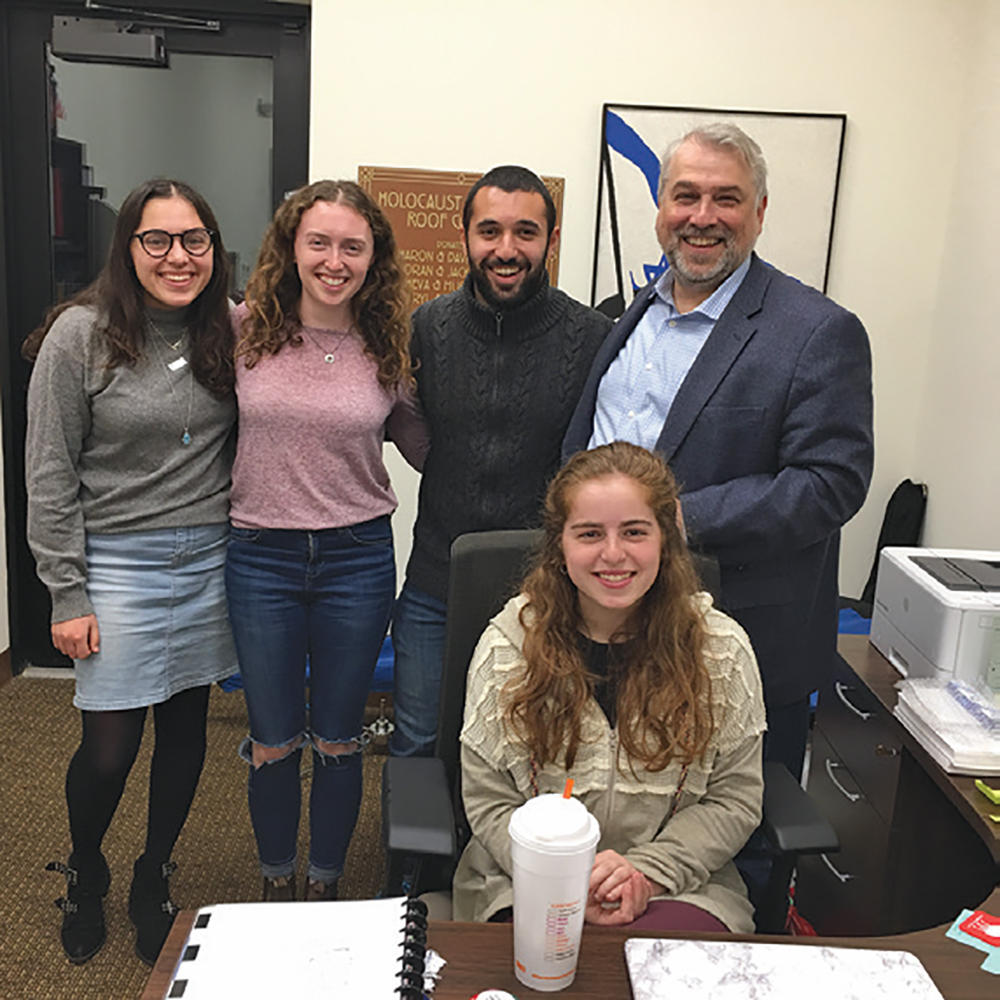
After the devastating events at the Tree of Life Congregation in Pittsburgh on October 27, it is perfectly understandable if members of the Jewish community are a bit more wary of anti-Semitism than usual.
This heightened vigilance may seem doubly warranted when it comes to the Rutgers University campuses. Jewish leaders and media organizations are aware of the troubling concerns raised during the prior academic year about the presence of three openly anti-Semitic professors on campus and the slow response of the university administration.
Astute observers also know that in September the U.S. Department of Education (DOE) Office of Civil Rights reopened a case about Rutgers, in which students claimed harassment and discrimination at an event led by Palestinian supporters in 2011 (see story in The Jewish Link, October 4, 2018).
With this background, it is reasonable that Jewish community members are concerned about the climate at the state’s largest university.
In interviewing Jewish professionals and student leaders on campus over the past three weeks, a picture of the current environment for Jews on campus emerged. As it turns out, it is a remarkably favorable one.
“The foremost concerns of students are their classes, their papers, their tests, their job (if they have one) or getting a job (if they don’t), their friendship dynamics and other things,” said Andrew Getraer, the director of Rutgers Hillel. “When I or our staff members ask students if they are concerned about anti-Semitism, we’re often told that it’s a non-issue. That doesn’t mean that incidents don’t arise from time to time. But they aren’t common and don’t touch the lives of most students.”
Getraer drew on a broad sample of students as he shared this report. Hillel staff members interact regularly with hundreds of students and develop a keen sense of their concerns and perceptions.
“In last year’s incidents with the anti-Semitic professors, students were shocked because it’s not the Rutgers way,” said Getraer. ”Being Jewish on campus is generally so easy and the climate is one of an appreciation of diversity.” He added that Jewish events, and expressions of support for Israel, are a regular and accepted part of campus life.
Rabbi Yosef Carlebach, executive director of Rutgers Chabad, echoed Getraer’s perspective and drew on 40 years of experience at Rutgers to assert that Jewish life on campus has never been richer and more supported by the university administration. “I’ve seen anti-Semitism at its worst on this campus; I remember walking down College Ave. as a young rabbi and having beer bottles thrown at me, and people cursing at me. We are very far away from anything remotely like that,” said Rabbi Carelbach.
“We have an enviable relationship with the university administration. They realize that Jews are a large part of the student body, and staff and the administration are very receptive whenever we raise concerns. Over the years, if an issue came up, and we shared it with the university leaders in a respectful and non-confrontational way, they took it seriously and addressed it,” he added.
Rabbi Carlebach’s staff regularly interacts with students throughout the week and he said that none have heard any student concerns about anti-Semitism in the past few months.
Student leaders on campus offered similar views. Elisheva Strauss, a junior from East Brunswick, is a Hasbara Fellow on campus and immersed in Israel advocacy. She said that when promoting Israel activities recently, she has heard no anti-Semitic remarks and found people “curious to learn more about Israel.”
Rafi Levi, a junior from Detroit who runs Jewish learning groups at the Hillel explained, “There may be bad stigmas out there (about Jewish life at Rutgers) but it’s really incredible … there are so many avenues to engage with your Jewish identity here and to be supported.”
Nechama Lowey is a sophomore from Passaic who recently transferred from the Sy Syms School at Yeshiva University. She came to Rutgers looking for a more diverse experience, socially and academically. She said that she’s found the campus “welcoming and accommodating” and when she tells people that she’s Jewish, people are “curious about what it means.”
The view that Rutgers offers an abundance of respect and support for Jewish life on campus comes from well-informed faculty as well. Jenny Mandelbaum, professor in the Department of Communication, is co-chair with Music Department Assistant Director and Associate Professor Rebecca Cypess of the Jewish Faculty, Administration and Staff group (J-FAS). She reported that J-FAS has 100 people on its mailing list and meets three times each semester. J-FAS worked closely with the senior university administration last academic year to make sure that the university set appropriate consequences for Professor Michael Chikindas, after his anti-Semitic Facebook posts came to light.
Mandelbaum said that the campus climate for Jews at Rutgers is generally very good. “Rutgers is a great place to be Jewish.” She noted that with any school the size of Rutgers, there are bound to be a few members of the campus community whose views of Jews depart from the norm. But overwhelmingly, the administration is very supportive of and receptive to Jewish concerns.
By Harry Glazer










